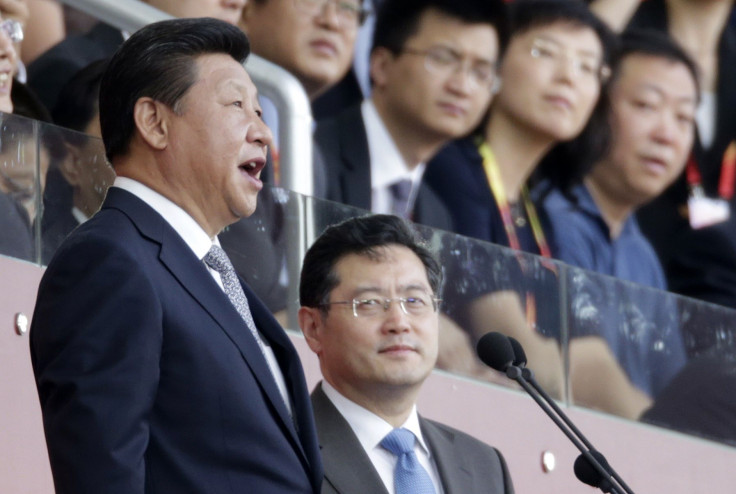China Slowdown: Could Black Monday Pose Political Troubles For President Xi Jinping?

On the fourth day after the Shanghai Composite Index dropped a record 8.5 percent, and more than two months after Chinese stock markets first began their steady decline in mid-June, many are wondering about the potential political repercussions for Chinese President Xi Jinping. The government has openly rejected suggestions that China's economy could suffer in the long term, even as others contend that Communist Party leaders may nevertheless face political fallout from the economic turmoil.
“The fear has to be…that party stability is on the line if the economy doesn’t work,” Fraser Howie, the co-author of Red Capitalism, told the Guardian Thursday. “Intra-party battles are already going on thick and fast.”
Such theories are hardly new--media have speculated since the market's slide began in June that a slowdown would test Xi's credibility as a leader--and it could take many more months for such predictions to manifest. Xi has been especially involved, more so than previous presidents, in economic policymaking, the Economist has explained. As a result, it's more difficult for Xi to escape responsibility when markets don't perform satisfactorily. Chinese Premier Li Keqiang has also come under scrutiny as Chinese markets have lagged.
Beijing, perhaps unsurprisingly, has argued that the regime will survive. “An economic boom will boost the popularity of any regime. If the Chinese economy crumbles and people are on the edge of starvation, no regime can sustain its rule,” the Global Times, a tabloid published by Chinese Communist Party, said in an editorial Thursday. “But will periodic economic slowdowns and difficulties in adjustment hurt the legality of China’s political system? That’s a delusion.”
The market turmoil could foster, however, opposition from within the party's ranks, the Economist suggested in an article published Wednesday. And Beijing-based political commentator Zhang Lifan told the South China Morning Post that things were "not going well" after a recent meeting of high-level party officials in the Hebei seaside resort of Beidaihe ended in conflict.
"Different groups are pursuing their own ways," he said. "This is a test of the leadership's ability to execute its mission."
© Copyright IBTimes 2025. All rights reserved.






















